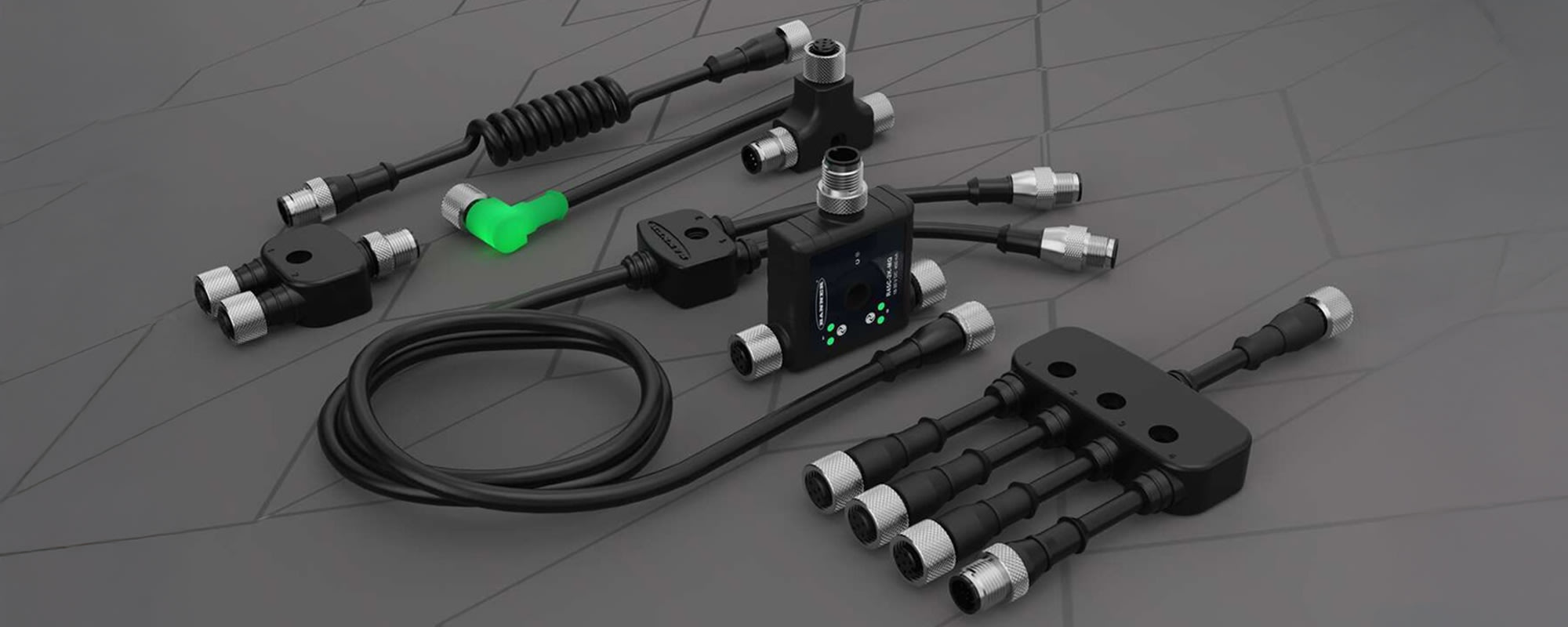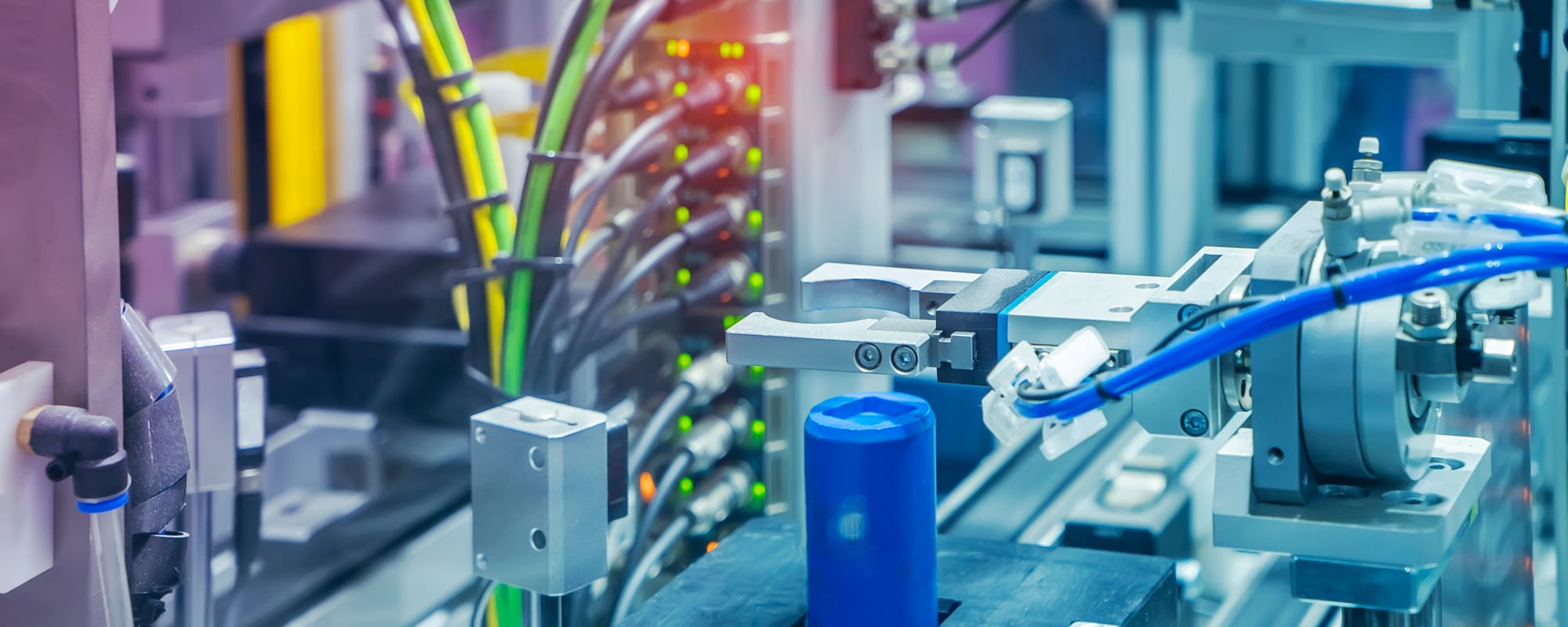The third installation of our four-part series celebrating Manufacturing Day 2024 features an interview with Barry Turner, Technical Business Development Manager at Red Lion Controls, who shares expert insights into the modern manufacturing industry and, in the spirit of the initiative, aims to shift its perceptions and help close the skills gap impacting its continued success.
This year, as part of our efforts to raise awareness of Manufacturing Day and Month, shift the perceptions of students, educators, parents, community leaders, and influencers, and help create long-term solutions for the skilled labor shortages impacting every sector of the industrial manufacturing industry, we interviewed four representatives with firsthand knowledge:
- Frank Latino, Global Product Manager – Electric Automation at Festo, and Daniel Rodriguez, Sales Director for Festo Didactic North America
- Barry Turner, Technical Business Development Manager at Red Lion Controls, Inc.
- Abe Fares, OEM Area Sales Manager – Gulf Region, Eaton
In this installation, we speak to Barry Turner, Technical Business Development Manager at Red Lion Controls. Red Lion is a leading global supplier of industrial data solutions that enable users to access, connect, visualize, and leverage their valuable process and equipment data in real-time to improve productivity and reduce costs.
To view introduction to the series, click here. To view the other experts’ insights, click the links embedded in the supplier names bulleted above.
Barry Turner, Technical Business Development Manager at Red Lion Controls, Inc.

Barry Turner is the Technical Business Development Manager at Red Lion Controls. He has over over 27 years of experience in both IT and OT and a specialized focus on manufacturing, and his career includes key roles that have given him deep insights into industrial automation and the unique challenges of modern manufacturing.
Barry started as a field application engineer and quickly became a trusted problem-solver, translating complex technical needs into actionable solutions. For the past 12 years, he has worked directly with customers in the energy, water, manufacturing, and logistics industries, helping them leverage Red Lion’s solutions to connect, visualize, and optimize their operations in the era of Industry 4.0. Now, in his business development role, Barry continues to guide companies through digital transformation and promote Red Lion’s technical value proposition.
1. What do you find most exciting about the rapidly evolving manufacturing industry, and how does it feel to be a part of the fourth industrial revolution or Industry 4.0?
Industry 4.0 continues to evolve and is fundamentally changing the way we approach manufacturing. At the forefront is the need to remove data barriers to securely gain access to data islands for greater operational efficiency. At Red Lion, we’re right in the middle of this transformation, helping companies at mile one securely gain access to all their data. It’s rewarding to see how our solutions empower businesses to make smarter, faster decisions that increase productivity.
2. What do you find most challenging about the rapidly evolving manufacturing industry, and how is your organization working to overcome those challenges?
One of the biggest challenges is maintaining quality and consistency across both new and legacy systems. Our focus is on ensuring that Red Lion solutions integrate seamlessly, providing real-time data insights to address issues quickly. We stay agile by evolving our products, building strategic partnerships, and developing our workforce to meet the demands of a digitized world, helping customers overcome similar challenges.
3. What major changes do you expect to see in the industry over the next 5–10 years?
In the next decade, I expect to see widespread adoption of AI, machine learning, and autonomous manufacturing systems. There will also be a major push toward sustainability, with manufacturers under pressure to meet stricter environmental standards. Red Lion is already adapting to these trends, focusing on creating solutions that allow companies to optimize energy use, reduce waste, and embrace greener practices while staying profitable.
4. How does your organization’s work as a manufacturer contribute to other key industries that impact people’s everyday lives? What kinds of end products do you enable that consumers might not connect with you but wouldn’t be able to enjoy without you?
Red Lion is a critical enabler across sectors like energy, water, manufacturing, and logistics. Our products may not always be visible, but they empower the systems behind electric grids, water treatment plants, and even the infrastructure that supports intelligent transportation. We provide automation and networking solutions that ensure reliability and safety and improve lean operations in industries that people rely on daily.
5. Why should students and young professionals consider a career in manufacturing?
Manufacturing is not just about making products; it’s about innovation and problem-solving. Today’s manufacturing industry requires a blend of technical skills, strategic thinking, and creativity. As we move into a digital-first era, young professionals can work with high-tech solutions, from AI to the IIoT, and make a tangible impact on global mechanical challenges. At Red Lion, we pride ourselves on fostering innovation and offering growth opportunities in a high-tech environment.
6. When people think about manufacturing jobs, they often think about machine operators or maintenance personnel. What are some other, lesser known but equally vital manufacturing jobs that students and young professionals should know about?
When thinking of manufacturing, roles like machine operators and maintenance personnel come to mind, but several lesser-known positions are equally vital. Supply chain optimization specialists, for example, ensure that materials flow smoothly through the production process, reducing costs and delays. Data analysts are also crucial, using metrics to track efficiency, predict trends, and inform decision-making. Process improvement specialists focus on enhancing workflow, identifying inefficiencies, and suggesting innovations to boost productivity. These roles all contribute to the industry’s success by leveraging technology and strategy, making them essential for students and young professionals to consider.
7. Another thing that often comes to mind when people think about the manufacturing industry is pollution. The manufacturing and construction industry is currently the world’s third-largest source of greenhouse gas emissions and, as such, has an important role to play in global sustainability efforts. What is your organization doing to reduce its environmental impact and support sustainability throughout the global supply chain?
Sustainability is a core part of Red Lion’s mission. We’re developing solutions that help manufacturers connect the dots by tracking things like energy consumption and optimize their processes to reduce environmental impact. In addition, we are actively implementing ways to incorporate more sustainable practices into our daily operations. Some examples include reducing paper used in our packing and shipping processes and using our own industrial products to monitor our energy consumption. It’s crucial for us to not only contribute to smarter manufacturing but also to lead efforts in reducing the overall environmental footprint.
8. Why should people consider joining your manufacturing workforce?
Red Lion offers an environment where innovation and operational excellence are at the forefront. We are a global organization with a strong emphasis on collaboration, and we foster a culture where every employee has a voice. Working here means being part of a team that is shaping the future of manufacturing, driving both technological advancements and sustainable practices. If you’re driven to make an impact and want to be part of an organization that values innovation and creativity, Red Lion is the perfect place for you.
Dive Deeper
To learn more about Red Lion Controls and the Red Lion product solutions available at RS, click the links embedded here. For more expert insights from Red Lion, check out their contributions to the RS Expert Advice Series.
To learn more about the incredible impact that the American manufacturing industry has on the U.S. economy and the history of National Manufacturing Day, check out the first installation of this four-part series, “National Manufacturing Day Part 1: History and Impact.” For more expert insights into the modern manufacturing industry, click the bulleted links at the beginning of this article to access our Festo and Eaton interviews.







